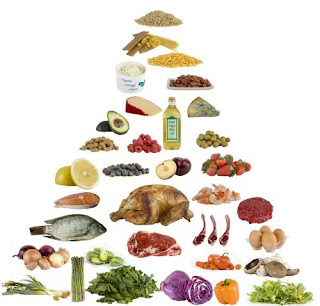
There is no mystery behind the creation of a simple and healthy diet plan and anyone can make one with just a little help. Many people know what to eat in order to lose weight and maintain it over time but the efforts are not successful because of the absence of a smart eating plan which can be easily created with countless tools available on the internet. Remember people, work smart not work hard. Whilst searching for a suitable diet, people face the common problem that the diet needs to be custom-made or specifically designed for the person otherwise it doesn't really work. Your specialized eating plan should be created to suit your lifestyle and not the other way round. The trick behind creating a healthy diet plan is to identify the foods that you can include in your daily intake. After identifying the foods that you can have, the bridge needs to be crossed from knowledge to action and actually implementing that information.
This is where the creation of a healthy eating plan comes in so that you can follow it to the dot. One of the basic things to know about healthy diet plans is that they need to touch upon all the categories in the Food Pyramid so that nothing that your body actually requires is left out of your diet. A healthy diet plan should be such that you have a massive breakfast, a moderate lunch and a mild dinner. This is the expert take on having healthy eating habits so that you metabolism remains fast with work to do whilst you engage in everyday activities. You should search on the internet for relevant healthy diet plans according to your weight and height and then implement them in your routine. A smart thing to do would be going to websites such as ehealthydietplan and create a healthy, workable diet for you. The website requires you to enter your information such as target weight as well as your gender to generate a personalized diet.
The calorie requirements for men and women differ greatly and thus there is a difference in the recommended foods as well. Then, you have to specify whether you have a sedentary, active or moderately active lifestyle. The website will then generate the information relevant to your body such as Body Mass Index and Body Fat percentage. You can take a look at the diet plan that gives you several options for breakfast, lunch, snack and dinner. What's more: the diet plan will even show the breakdown of calories consumed at different times so that you don't even have to manually calculate them. Afterwards, once you are equipped with a healthy diet plan that perfectly suits the needs of your body; you know which foods to pick in the super market and what to order whilst dining in a restaurant. You should also consider pairing your healthy diet plan with some exercise routines and supplements so that you have a balanced active lifestyle. For more information on the easy and dead simple healthy diet planner, please follow the link in the resource box below.
This is where the creation of a healthy eating plan comes in so that you can follow it to the dot. One of the basic things to know about healthy diet plans is that they need to touch upon all the categories in the Food Pyramid so that nothing that your body actually requires is left out of your diet. A healthy diet plan should be such that you have a massive breakfast, a moderate lunch and a mild dinner. This is the expert take on having healthy eating habits so that you metabolism remains fast with work to do whilst you engage in everyday activities. You should search on the internet for relevant healthy diet plans according to your weight and height and then implement them in your routine. A smart thing to do would be going to websites such as ehealthydietplan and create a healthy, workable diet for you. The website requires you to enter your information such as target weight as well as your gender to generate a personalized diet.
The calorie requirements for men and women differ greatly and thus there is a difference in the recommended foods as well. Then, you have to specify whether you have a sedentary, active or moderately active lifestyle. The website will then generate the information relevant to your body such as Body Mass Index and Body Fat percentage. You can take a look at the diet plan that gives you several options for breakfast, lunch, snack and dinner. What's more: the diet plan will even show the breakdown of calories consumed at different times so that you don't even have to manually calculate them. Afterwards, once you are equipped with a healthy diet plan that perfectly suits the needs of your body; you know which foods to pick in the super market and what to order whilst dining in a restaurant. You should also consider pairing your healthy diet plan with some exercise routines and supplements so that you have a balanced active lifestyle. For more information on the easy and dead simple healthy diet planner, please follow the link in the resource box below.



